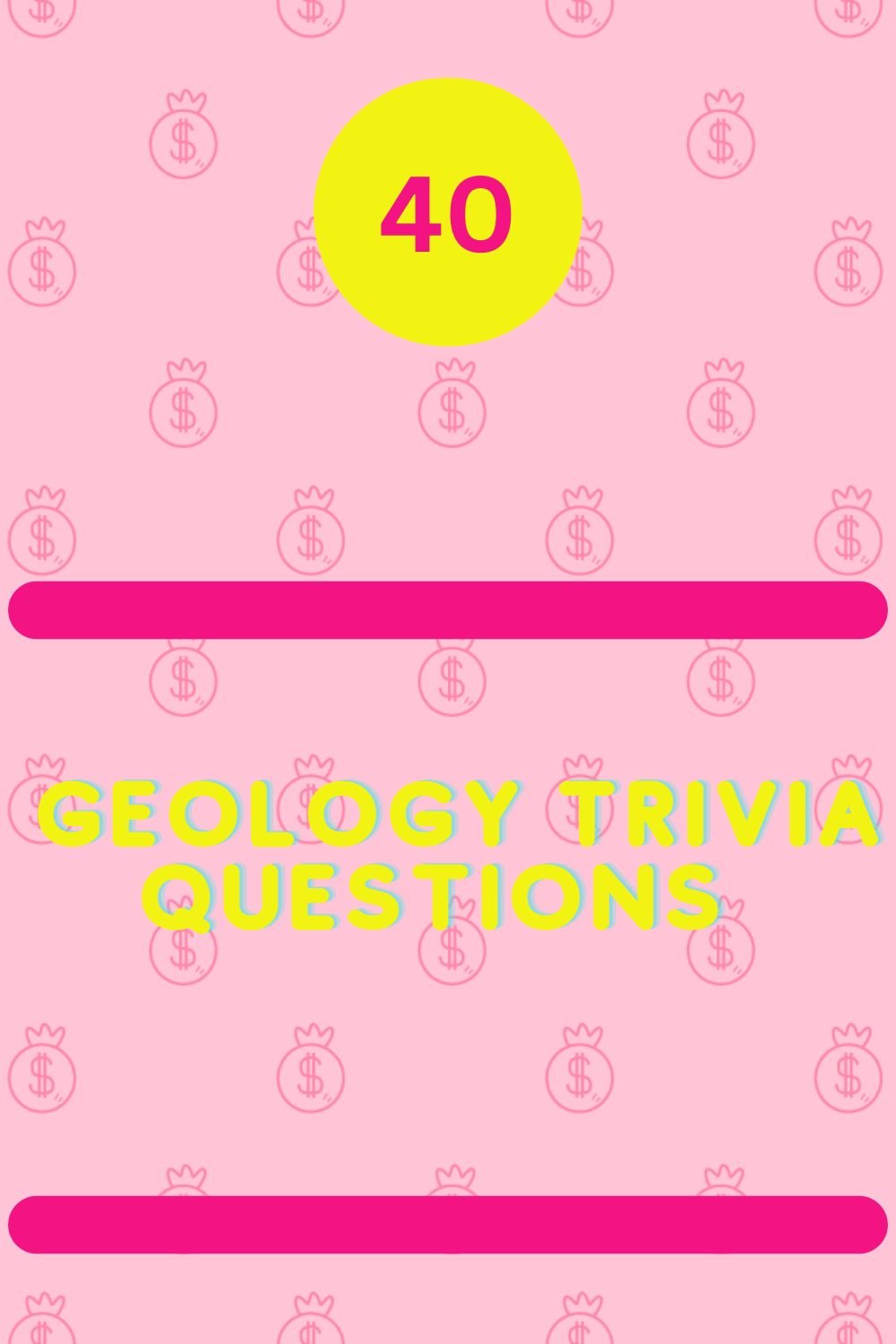From the towering peaks of the Himalayas to the mysterious depths of the Mariana Trench, the Earth’s geology holds a treasure trove of wonders waiting to be uncovered. Delve into the captivating realm of geology with these 40 intriguing trivia questions that will challenge your knowledge and spark your curiosity. Whether you’re a seasoned geology enthusiast or just starting to unearth the wonders of the planet, these questions are sure to rock your world!
Geology, the scientific study of the Earth’s composition, structure, processes, and history, reveals the remarkable story of our planet’s evolution over millions of years. By examining rocks, minerals, fossils, and even seismic activities, geologists piece together the intricate puzzle of Earth’s past and present. Did you know that the Grand Canyon showcases nearly two billion years of geological history, offering a visual journey through time? Geology not only helps us understand the planet’s history but also plays a crucial role in locating valuable resources and mitigating natural hazards.
Embark on a geological journey that spans continents and epochs. Test your knowledge about plate tectonics, mineral formation, famous geological landmarks, and much more. Challenge yourself to identify different rock types, comprehend the forces that shape landscapes, and uncover the mysteries of earthquakes and volcanoes. Whether you’re pondering the origins of precious gems or the formation of massive mountain ranges, these trivia questions are bound to ignite your passion for the dynamic and ever-changing world beneath our feet.
If you loved these trivia questions, you might also want to try our 40 Family Guy Trivia Questions.
Geology Trivia
#1. What type of rock is formed from the cooling and solidification of molten magma?
#2. Which mineral is the hardest naturally occurring substance on Earth?
#3. What is the term for a sudden shaking or trembling of the ground caused by movements along geological faults?
#4. What is the name of the boundary where two tectonic plates move apart from each other?
#5. What type of rock is formed from the accumulation and cementation of loose sediments over time?
#6. Which natural disaster is caused by the sudden collapse or explosion of a volcano's magma chamber?
#7. What is the process by which rocks are broken down into smaller particles by physical and chemical processes?
#8. What is the term for the process by which water, wind, or ice carries away fragments of rock and soil?
#9. What is the name of the supercontinent that existed millions of years ago and eventually broke apart to form the modern continents?
#10. Which type of rock is characterized by its layered appearance due to the accumulation of sediments?
#11. What is the term for the process by which rocks are changed in structure and composition due to heat and pressure?
#12. What is the name of the boundary where two tectonic plates slide past each other horizontally?
#13. What is the most abundant gas in the Earth's atmosphere?
#14. What type of rock is formed from the alteration of existing rocks through heat and pressure?
#15. What is the term for the process by which minerals precipitate out of solution to form solid rock?
#16. What is the name of the boundary where an oceanic plate is forced beneath a continental plate?
#17. Which famous mountain range forms the boundary between Europe and Asia?
#18. What is the term for the process of breaking down rocks into smaller particles through physical means?
#19. What is the term for a large, bowl-shaped depression formed by the collapse of a volcano's summit?
#20. Which natural disaster is caused by the sudden displacement of ocean water due to underwater earthquakes?
#21. What is the name of the theory that explains the movement of Earth's tectonic plates?
#22. Which type of rock is formed from the recrystallization of minerals due to heat and pressure?
#23. What is the name of the molten rock that is found beneath the Earth's surface?
#24. What is the term for the layer of the Earth's atmosphere where weather events occur?
#25. What is the process by which water vapor in the atmosphere turns into liquid water?
#26. What is the name of the type of rock formed from the accumulation of plant and animal remains over time?
#27. What is the term for the process by which rocks are broken down by chemical reactions?
#28. What is the term for the process by which soil and rock are removed from one area and transported to another by wind, water, or ice?
#29. What is the name of the process by which water vapor is released from plants into the atmosphere?
#30. What is the name of the layer of the Earth's interior located between the crust and the core?
#31. What is the term for the process by which sediment settles out of a liquid and onto a surface?
#32. What is the name of the process by which the Earth's surface is worn away by natural forces such as water, wind, and ice?
#33. Which type of rock is formed from the cooling and solidification of lava?
#34. What is the term for the layer of the Earth's atmosphere that contains the ozone layer?
#35. What is the name of the boundary where two tectonic plates move towards each other?
#36. What is the term for the slow movement of the Earth's crust due to convection currents in the mantle?
#37. What is the name of the boundary where two tectonic plates grind past each other horizontally?
#38. What is the term for the natural process of Earth's outer surface being worn away over time?
#39. What is the name of the layer of the Earth's interior that consists of solid rock and extends to a depth of about 2,900 kilometers?
#40. What is the term for the layer of the Earth's atmosphere that contains the ionosphere?



